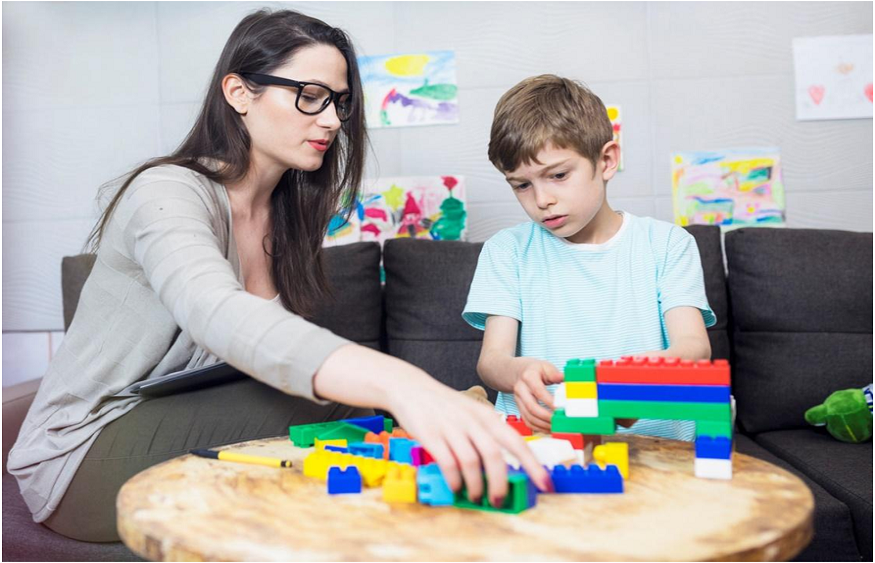Culturally responsive school counseling: How to meet the needs of diverse student bodies
The world is more diverse than ever, and today’s students are part of a much more diverse student body than those from even a decade ago. Even more than schools with more cultures represented within them, contemporary schools are building culturally responsive policies to provide all students with a supportive environment where their differences can be acknowledged and respected. School counselors play a critical role in advancing these policies and integrating acceptance into the student body on fundamental levels.
What exactly is culturally responsive school counseling and how can school counselors meet the needs of a diverse student population? Let’s take a look at school counselors, everything they do in schools, and how they can utilize modern counseling techniques to improve inclusivity and equality among students.
What do school counselors do?
School counselors are an important part of today’s education system. They play a vital role in schools by helping students better their academic, career, social, and personal development. School counselors are often the first line of defense between students and teachers when it comes to academic or behavior problems, for example, and seek to not only advocate on students’ behalf but also help the students in question remedy the underlying problem.
Counselors also work directly with administrators and parents to address the needs of students with a wide range of issues. Their overall goal is to ensure that students are as healthy and happy as possible. They dedicate their time to improving the well-being of the students with whom they interact.
While it would be difficult to list everything school counselors do, we’ll detail some of the most important and widespread tasks below. Note that the exact duties school counselors are expected to carry out depend on the school in question. If you are interested in becoming a school counselor, you might not experience every single option below.
One-on-one counseling
One of the main areas where counselors help students is via one-on-one counseling sessions. School counselors have individual counseling sessions with students struggling with academic, emotional, social, or behavioral issues. They seek to help students understand their emotions and work through them in a healthy way. Counselors also work with students to identify the root causes of their problems. By exploring the challenges these students face every day, school counselors can help them detect current and future challenges and respond to them effectively and productively.
Group counseling
In addition to one-on-one sessions, school counselors also host group counseling sessions. There are several reasons these sessions might be conducted. Students struggling with losses in their lives might be counseled together, for example, as might students dealing with the same behavioral issues. Counselors also conduct group sessions with students who conflict with one another.
The goal of group counseling sessions is to help students learn anger management, conflict resolution, and social skills development. Group sessions can also help students build their self-esteem and learn to manage their emotions better.
Academic support
It might not be the first thing you imagine when you think of them, but school counselors help students academically, too. Counselors are actively involved in academic goal setting and achieving, for example, and help students set educational goals, develop study skills, choose appropriate courses, and explore potential future careers. They might also provide academic guidance and collaborate with teachers and parents to monitor student progress.
Note that school counseling is especially important for students struggling with learning disabilities. The right counselor can help them effectively communicate with their teachers and design a learning plan to improve their chances of academic success.
Career and college guidance
While they might not have a concrete idea about what career they want to pursue, students are usually happy to follow their interests. School counselors can help them on their way by connecting them with professionals in their chosen field to schedule shadow days, by working through local resources such as guest lectures on the topic in question, and by providing support and feedback as they explore potential career paths. Counselors are especially important in educating students about interview skills and professional conduct. Finally, school counselors sometimes organize career fairs to help students connect directly with successful professionals in their field of choice.
Students who are more interested in college or vocational school than they are in finding a job right out of school should also find a lot of support from their school counselors. Counselors should assist students as they navigate the college admissions process. This includes help managing:
- College applications
- Vocational school applications
- Scholarship opportunities
- Financial aid options
- Entrance exams
School counselors are a valuable resource for students who might otherwise not have much support exploring the possibility of higher education. They also routinely help students research and evaluate colleges, complete applications, and write personal statements. The most effective counselors also give students tips about transitioning from high school to college, which can be surprisingly difficult for all kinds of students.
Crisis intervention and parent/family engagement
Students experiencing crisis situations such as acute trauma, the loss of loved ones, and emergencies will also interact with school counselors regularly. In these situations, counselors help students deal with the serious issues facing them and collaborate with external resources and school staff to secure help for students and ensure their well-being and safety. They might help students secure outside, specialized counseling, for example, or find emergency housing and critical items like clothing and basic toiletries.
School counselors do not work with students and teachers only. A big part of their job is working with students’ parents and families. They communicate with loved ones to monitor student progress as well as to keep them up to date with academic or social issues they might be facing. The school counselor’s role is always to help students develop healthily and provide them with the tools they need to live well.
Advocacy and consultation
School counselors work with teachers, administrators, and other school staff to monitor students and detect the potential need for crisis intervention. They do this by working closely with teachers and administrative staff alike. If necessary, school counselors also develop and implement programs to help support academic and social development.
Beyond helping students succeed, school counselors also advocate for students. Their goal is always to do what is best for the child, and that includes ensuring that all of their rights are followed by both the school in question and the larger school system. The best counselors also advocate for inclusive policies and practices designed to promote student well-being and equality.
What is culturally responsive school counseling?
Culturally responsive school counseling refers to counseling that recognizes that today’s schools are home to many different cultures and belief systems and works to ensure that all students’ needs are met appropriately. This counseling method takes into account cultural identities, values, beliefs, and experiences when working directly with students as well as with their families and is designed to provide a supportive and inclusive environment where students can thrive socially, emotionally, and academically regardless of their culture.
It is worth noting here that culturally responsive school counseling does not ignore cultural differences. In past decades, ignoring differences and adopting a “business as usual” attitude was the preferred way to handle different belief systems in schools. It was the easiest way to address issues and allowed all students to be treated equally, regardless of their beliefs or customs. Today, we understand that this suppresses cultures that differ from the majority and builds an environment inherently hostile to differences. All cultures are to be accepted in today’s school environment as much as possible, and cultural differences should be celebrated rather than ignored.
Culturally responsive counseling takes all of the above into account. It is counseling that seeks to provide a supportive environment for all students, and does this by recognizing and respecting cultural identities, values, beliefs, and experiences. This is far away from the “one-size-fits-all” approach we mention above. A culturally responsive approach to school counseling acknowledges the impact that culture has on every aspect of a student’s life and incorporates this information into school policies and standards.
There are a few key components of culturally responsive counseling to keep in mind.
Collaboration with broader support networks
Unless the culture in question is your own, school counselors must put time and effort into learning more about their students’ communities. One of the most effective ways to get started is by interacting with students’ loved ones. Whether they are friends, family, or other people who share the same cultural background, a student’s broader support network says a lot about the potential strengths and weaknesses they experience. That’s why being able and willing to communicate with parents, friends, or even religious officials is absolutely critical in building a culturally responsive school counseling environment.
Addressing systemic inequality
While we are getting better at recognizing and respecting cultural differences, there is still work to be done. There are still systemic inequities that impact students’ educational experience on a number of levels. From their reception by schoolmates and teachers to the challenges they might face in joining extracurricular activities, sometimes the deck is stacked against these students. This is where school counseling comes in.
As a culturally responsive school counselor, your job is to recognize the inherent inequality in the school system and work to transform it from the inside. This includes identifying biases, discriminatory practices, and stereotypes impacting students within the school system. Furthermore, you should be willing to go to bat for your students! This includes advocating for policies and practices that promote equality, inclusion, and the tenets of social justice.
Overall, culturally responsive school counseling hopes to empower students of all cultures to take hold of their schooling and their futures by creating a welcoming and respectful environment that recognizes and respects their specific beliefs and traditions. By incorporating cultural responsiveness into counseling practices, school counselors can better interact with students from all manner of cultures and meet the needs of their diverse student populations.
How can I learn more about culturally responsive school counseling?
If you’re already employed as a school counselor, the best advice is to do a bit of research into local initiatives designed around cultural inclusiveness. Don’t be afraid to admit that you don’t know it all and need some help developing your cultural competence. You could even go back to university and study for another, even more specialized degree.
If you’re interested in becoming a school counselor but don’t yet have a degree, on the other hand, the best advice is to pick your educational foundation carefully. Choose a school that has a proven history of producing successful school counselors and has a diverse student body. If you’re looking to earn a masters school counseling online, for example, you might consider St. Bonaventure University. They offer an accredited program with a plethora of culturally focused side courses to consider.
How does culturally responsive counseling impact schools?
We explained some of the important things that school counselors do earlier in the article specifically so that you’d understand the breadth of their work. They are involved in every facet of student life, even for students who don’t see them directly. From working with students in crisis to fostering a sense of inclusivity among the student body, school counselors can have a huge impact on the cultural responsivity of their schools.
Here are some of the ways that they help meet the needs of diverse student populations.
Cultural competence
School counselors should always seek to learn about different cultures, languages, and traditions. This helps ensure that they can understand and respect the unique experiences and sometimes strong perspectives of diverse students. Seeking cultural knowledge and implementing this information into everyday actions can help make the process of supporting diversity second nature. In time, school counselors build “cultural competence” — that is, the ability to interact with different cultures and respect their boundaries and beliefs. This, in turn, helps them interact with students from many different backgrounds.
Individualized approach
School counselors can further help meet the needs of diverse students by first recognizing the unique needs of individual students. They should meet with students independently, at least at first, to better learn about their cultural background and beliefs and how they might impact their performance at school. Once this information is recorded, school counselors can begin to create a place of trust and acceptance where students can be honest about their actions and feelings and receive support that is tailored to their cultural background.
Building relationships
Building strong relationships is critical when it comes to effective counseling. School counselors must develop relationships with students as well as their families that are based on trust, respect, and mutual cultural understanding. By listening to concerns and showing empathy, counselors can begin to gain more insight into their students’ experiences and home life. This further facilitates personalized support, which in turn further facilitates strong student-counselor relationships.
Culturally responsive interventions
We’ve described the importance of interventions above, but any intervention carried out must be designed with the student’s cultural background in mind. This includes incorporating elements of the culture such as values and traditions into the counseling sessions. Using culturally relevant resources, activities, and resources can help make the intervention more meaningful and relatable for students with diverse experiences and perspectives.
Collaboration with families and communities
Finally, school counselors must collaborate closely with families and community members in order to better understand the cultural contexts within which their students operate. Engaging families in the process helps bridge cultural gaps while ensuring that the counseling approach in question is aligned with the goals and values of the student’s family. Once again, the goal for school counselors should always be to help students thrive in all aspects of life. If this includes learning about different cultures, consider it an added bonus.
Are you interested in learning more about how you can change the system for the better with culturally responsive school counseling? Take the information above and use it as a foundation to fuel more in-depth research! You’ll be on your way to making positive changes in the world in no time.



